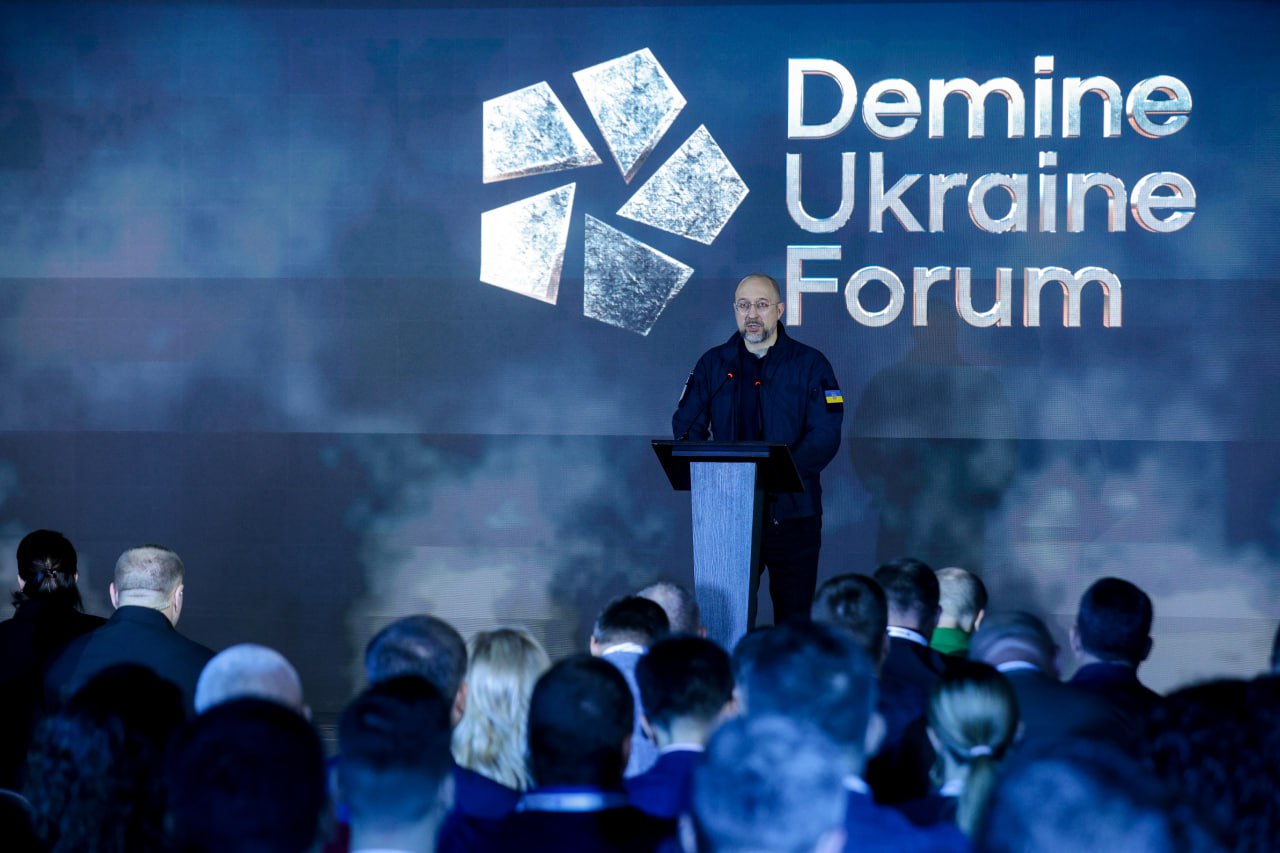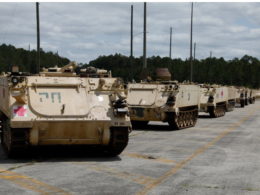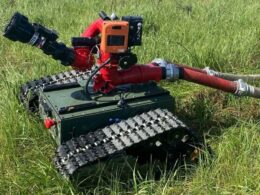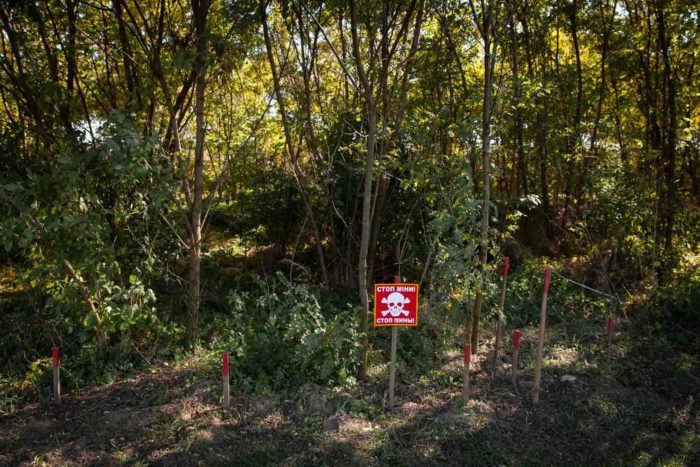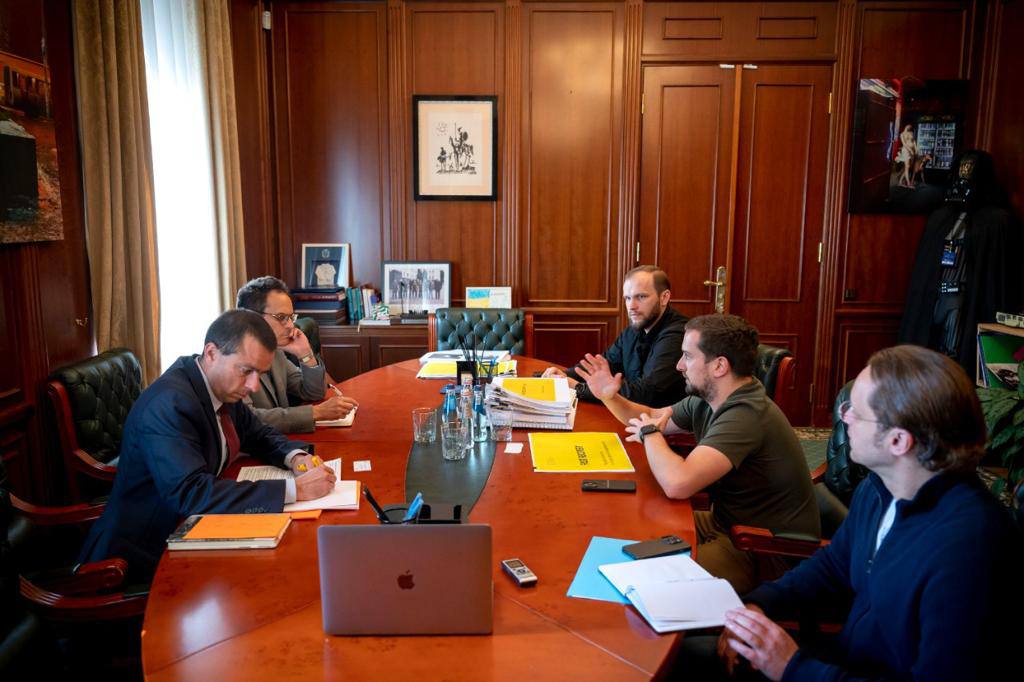Ukraine confronts one of the worst landmine crises globally following Russia’s full-scale invasion, officials emphasized on 27 September during the first Demine Ukraine Forum.
The strategic event aimed to mobilize domestic and international support to address the widespread explosive contamination now impeding Ukraine’s reconstruction efforts.
“No country after World War II has faced such a mining crisis as Ukraine is facing today,” Prime Minister Denys Shmyhal said.
The forum featured discussions between officials, demining experts, and technology companies focused on strategies and innovations to accelerate land clearance and systematically survey Ukraine’s vast mined areas.

Speakers underscored the need to significantly expand Ukraine’s demining industry, train more qualified personnel, and take advantage of advanced techniques, including drones and artificial intelligence, to detect and clear munitions faster.
Officials also emphasized they are developing a comprehensive national mine action strategy while continuing to seek critical international assistance and investment in equipment and expertise.
“According to the World Bank estimate, cleaning the mined territory will require spending over $37 billion. These figures are as of today, with a note that this is the territory currently controlled by Ukraine,” Shmyhal stated.
In his forum remarks, Prime Minister Shmyhal stressed the need for Ukraine to spearhead testing of cutting-edge clearance methods, set up joint ventures producing demining gear locally, and establish a competitive demining industry by certifying both public and private firms.
While acknowledging the challenges are monumental with much work ahead, Ukrainian officials said the forum already demonstrated that Ukraine does not stand alone in facing this crisis. They aim to secure further international commitments at an International Conference of Donors for Humanitarian Demining in Croatia on 11 October.
“This is a global project that will be crucial for the security of our country and for the future of the whole world,” Shmyhal stated.
Beyond the enormous technical obstacles, speakers emphasized that clearing mines is crucial for re-establishing normal life, services, and economic activity across liberated regions, Suspilne media outlet reported.
As Shmyhal noted, infrastructure repairs cannot even begin in many strategic areas until they are certified mine-free. Tragically, delayed clearance has already led to civilian casualties as utility workers began restoring energy and water systems in the de-occupied territory of Kyiv Oblast.
The head of the Kyiv Oblast Military Administration, Oleksandr Pavliuk, spoke about the experience of demining Kyiv Oblast after de-occupation.
“In 2 months, we were able to bring people back to life. We recruited over 70% of humanitarian demining battalions. We involve guys who were at war, they will be future operators of humanitarian demining,” Pavliuk said.
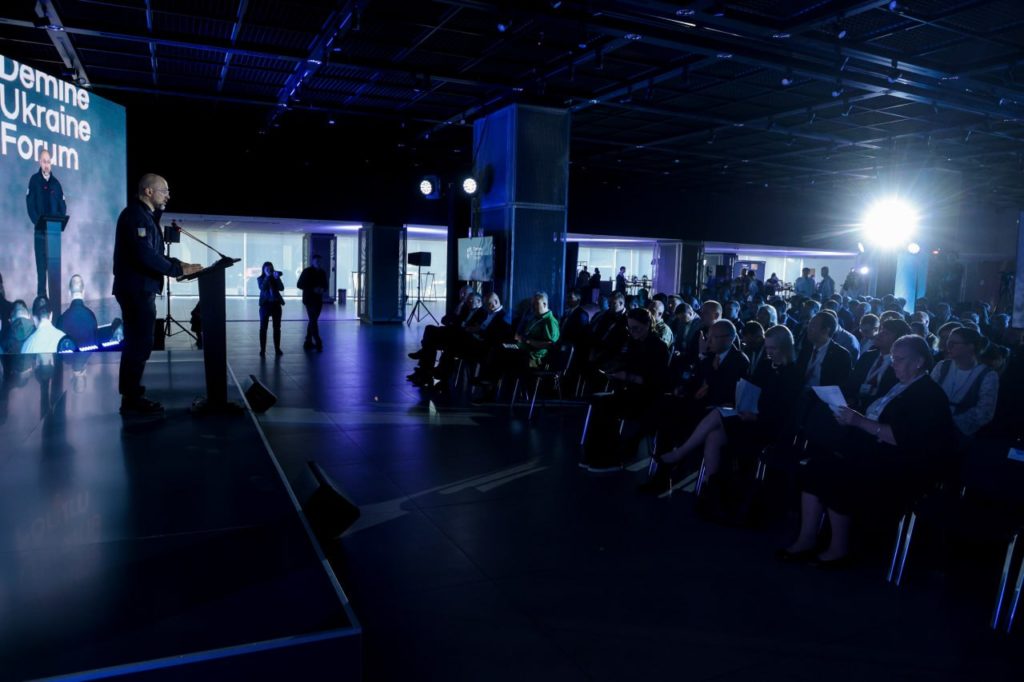
While the path ahead is long, officials touted progress being made through coordinated efforts. Over 18,000 kilometers of critical infrastructure have been cleared. And demining teams have inspected over 12,000 households, helping displaced civilians determine if their homes are safe for return.
Minister of Economic Development of Ukraine Yuliia Svyrydenko highlighted the massive economic impacts already seen, with Ukrainian farmers losing an estimated $31.5 billion in production due to the inability to safely plant and harvest crops. She announced a proposed $2 billion fund that would subsidize 50% of demining costs for farmers starting in 2024, providing an incentive for clearing agricultural lands.
“Demining the territories is the initial phase of restoring our country and an important step towards returning a full-fledged life to the de-occupied lands,” Svyrydenko said.

There are currently 16 certified demining companies operating in Ukraine, including international firms. Another 29 local companies are now undergoing certification, which will bring expanded private sector capacity online in the coming months.
According to Suspilne, Svyrydenko announced a new $2 billion fund in the proposed 2024 budget to subsidize 50% of demining costs when farmers purchase services through an e-tender system ProZorro launching next year.
With only around 3,000 trained deminers in Ukraine so far, at least 10,000 are needed to eliminate the significant number of landmines in a reasonable timeframe, Ukraine’s PM said.
US Ambassador Bridget Brink attended the forum and reaffirmed American support for Ukraine’s demining efforts.
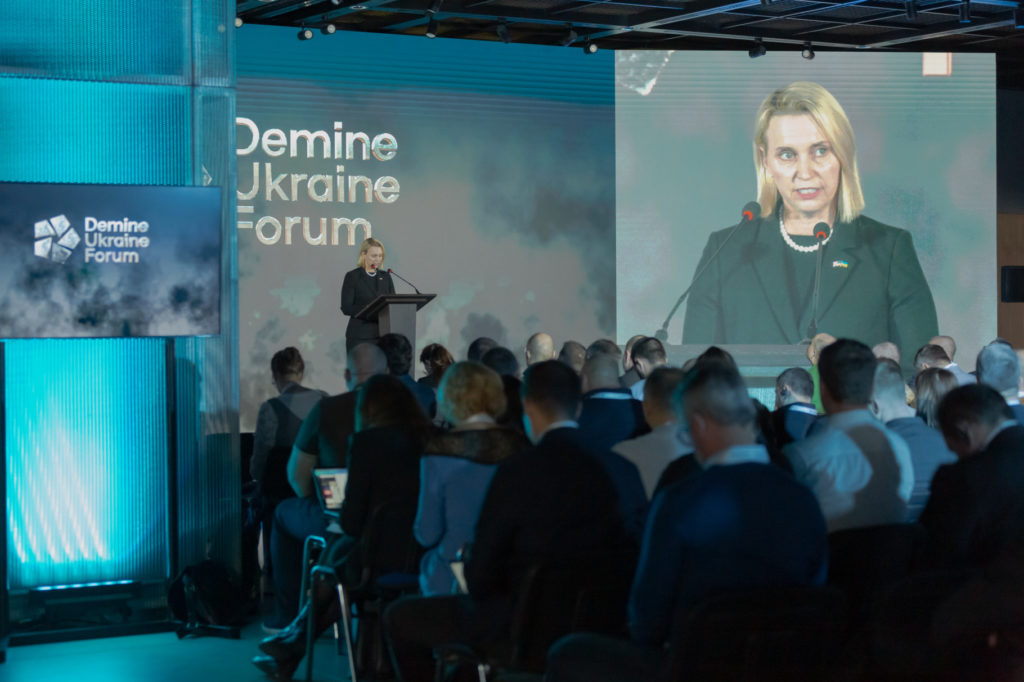
“We stand with you now, and we will continue to stand with you as you rebuild your country,” Brink said.
Japan’s ambassador Matsuda Kuninori also attended the event and pledged further aid from his country, which has already provided 50 mine clearance vehicles. Matsuda estimated that 80% of contaminated areas could be cleared within ten years if sufficient international support continues.

“I propose that all international partners find a way for demining to contribute to the development of the Ukrainian economy, the creation of new enterprises, and Ukraine’s access to the latest technologies. In turn, Japan will continue to support Ukraine and will stand side by side until the last mine in Ukraine is destroyed,” Matsuda Kuninori said.
Suspilne reported, citing Ukraine’s Emergency Service deputy chief Mykola Didyk, that 780 Ukrainians have been injured by landmine and unexploded ordnance explosions since 24 February 2022. Among them, 251 were killed, and 529 suffered wounds. The victims include 77 children, of whom 13 died.
https://twitter.com/euromaidanpress/status/1703826429337596333?s=46&t=VjCkks-WV0SVxGp8DlNO_A
Didyk said Ukraine’s demining teams have neutralized over 435,000 explosive devices across the country so far. But he warned that an estimated 30% of Ukraine’s total territory – some 174,000 square kilometers, nearly the size of Tunisia – requires clearance of mines and other dangerous remnants of war.




